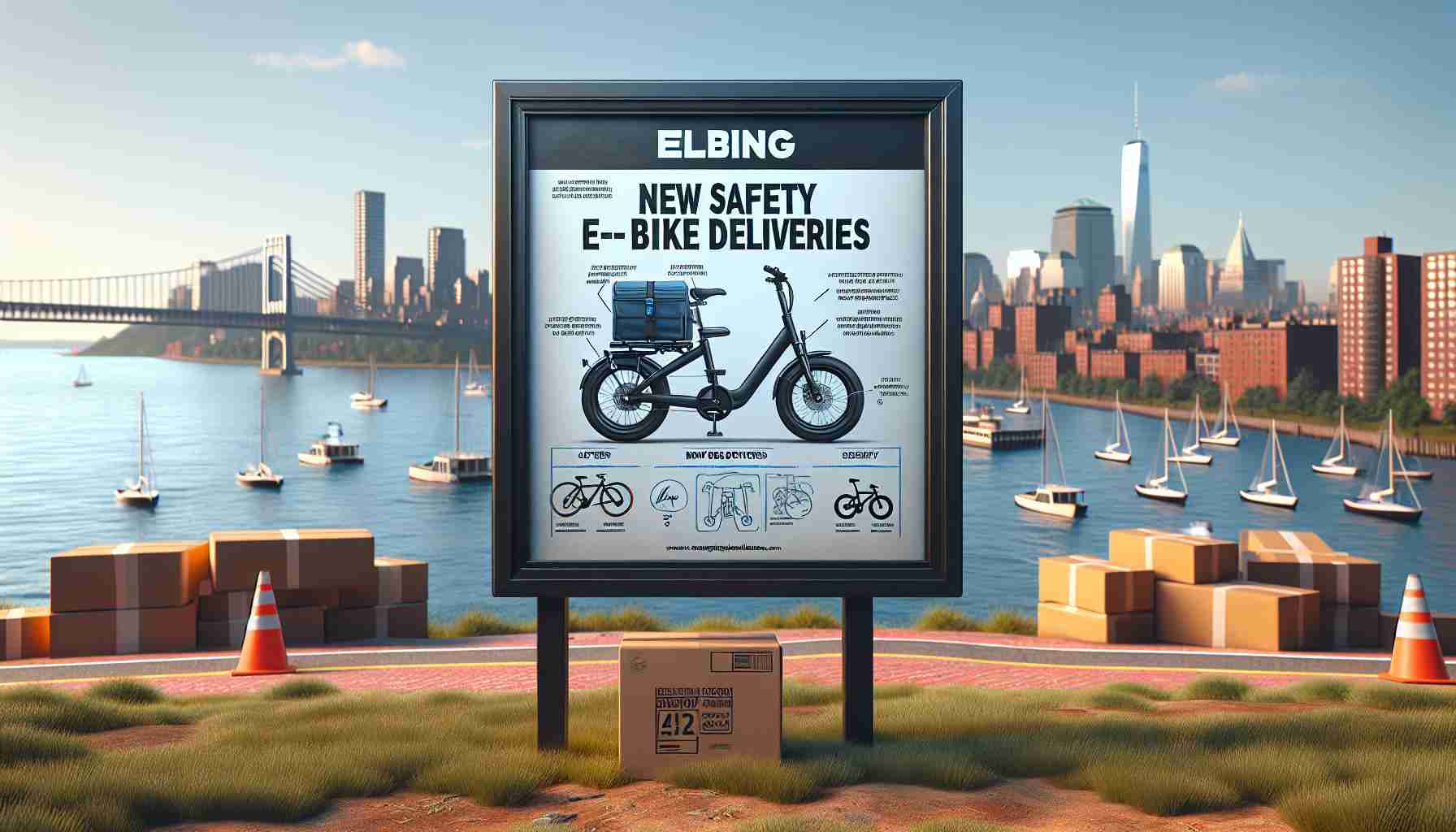In a significant move to enhance safety and regulation for commercial delivery services, Hoboken has introduced a new licensing system for individuals using electric bikes and scooters. This initiative mandates that delivery riders must register with the city, secure a license via the Hoboken Parking Utility, and complete a brief quiz aimed at ensuring they understand e-delivery operations.
As part of this new framework, delivery personnel will be required to wear a bright yellow vest, a measure designed to improve visibility and safety while they are on the job. Additionally, a modest fee of $5 is imposed for registration. The city announced these protocols through a Nixle alert, emphasizing the importance of compliance for both safety and accountability in the booming food delivery sector.
To obtain their licenses, riders must successfully answer at least four out of five questions on the quiz, which can be taken in-person or online. After licensing, the high-visibility vest and a numbered license will be issued, valid for a period of two years. Non-compliance, including failure to wear the vest, could result in fines and notifications sent to delivery companies.
These regulations not only aim to professionalize the use of e-bikes in delivery services but also promote safer road sharing practices among all users. The measures reflect Hoboken’s commitment to creating a safe environment for its residents and delivery personnel alike.
In recent years, the electric bike and scooter market has surged, particularly in urban areas where convenience and sustainability are paramount. As cities like Hoboken introduce regulations to manage this growth, the implications stretch far beyond local delivery services and hint at broader trends within the micromobility industry.
The global micromobility market, which includes electric bikes and scooters, is projected to reach approximately $300 billion by 2030, according to industry reports. This growth is fueled by an increasing number of consumers seeking eco-friendly transportation alternatives, especially in densely populated urban centers. As e-delivery services expand, the demand for reliable and safe solutions in urban logistics is becoming more critical. The introduction of licensing systems, like those implemented in Hoboken, signals a shift toward accountability and professionalism in a rapidly evolving field.
However, the burgeoning micromobility sector faces several challenges. Issues related to safety, infrastructure, and road-sharing remain prevalent. For instance, the increase in e-bike usage has raised concerns about accidents and the safety of both riders and pedestrians. A recent study indicated that cities with high micromobility usage experience more frequent accidents, underscoring the need for comprehensive safety guidelines and infrastructure improvements. Furthermore, as companies vie for market share, regulatory compliance becomes even more crucial; firms must adapt to varied local laws and standards, which can vary significantly from one municipality to another.
The licensing system initiated in Hoboken not only promotes accountability among delivery personnel but also serves as a model for other cities grappling with similar issues. This move reflects a larger trend in urban governance, where local authorities are increasingly motivated to implement tailored regulatory frameworks that prioritize public safety while accommodating innovative delivery solutions.
Furthermore, maintaining a balance between fostering innovation and managing safety concerns will be essential as the micromobility market continues to expand. Cities need to consider investments in infrastructure such as bike lanes and parking areas specifically designed for e-bikes and scooters.
The introduction of standardized licensing also opens the door for collaboration between municipal governments, delivery companies, and micromobility service providers. Such partnerships could enhance safety measures, optimize traffic flow, and ultimately lead to improved overall user experience.
As cities worldwide grapple with the challenges and opportunities presented by the e-bike and scooter industry, Hoboken’s licensing initiative may serve as a blueprint that others can follow, illustrating the balance between innovation and safety in the rapidly evolving landscape of urban delivery services. For further insights into the micromobility sector, you can explore Forbes and BBC for the latest industry news and trends.







